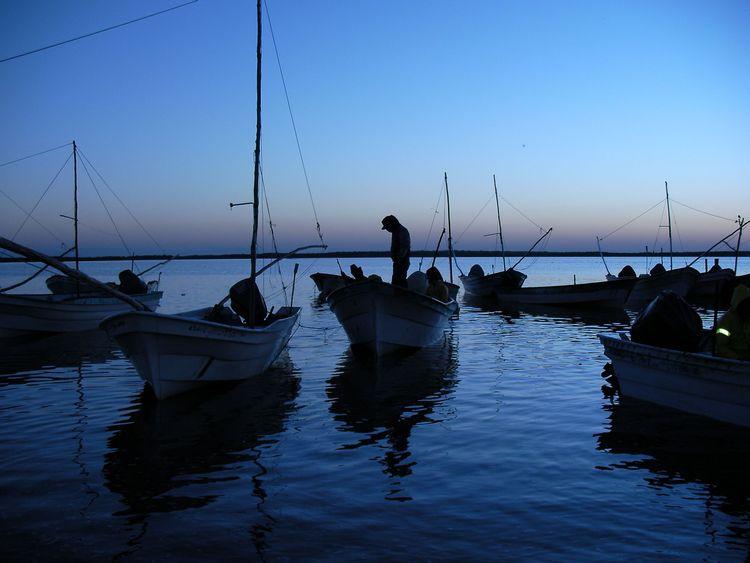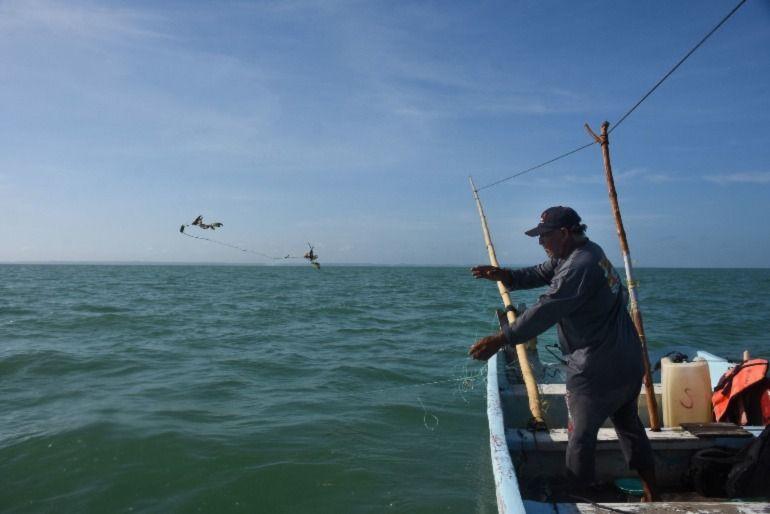There are numerous communities that, from the Gulf of Mexico, through the Amazon basins and to the Mar del Plata in Argentina, live on fishing and aquaculture. For the most part, they belong to the artisanal sector that, with small-scale vessels, support the markets and food security of entire countries.
“Social protection should be a fundamental right for the sector,” said Alejandro Flores Nava, Chief Fisheries and Aquaculture Officer of the United Nations Food and Agriculture Organization (FAO) for Latin America and the Caribbean.
In the region, it is estimated that there are 2.8 million people in the fishing and aquaculture sector. 90% is artisanal, also known as riverine.
Despite the numbers, the activity continues to be considered informal work. The FAO points out that there is no record of how many workers could have social security, but the reality indicates that there are few of them.
“(labor) informality is one of the first causes. In addition to the lack of institutional and legal arrangements so that they can even take out voluntary or contributory social security,” Flores Nava explained.
In 2022, the United Nations General Assembly has promoted the International Year of Artisanal Fisheries and Aquaculture to make visible work that supports 36 million people directly around the world.
As part of the actions, on Friday, May 20, the Mesoamerican Forum on Social Protection in Artisanal Fisheries and Small-Scale Aquaculture will take place. In an interview with Journalism Causa Natura, Officer Alejandro Flores talks about the central issue: the exclusion of fishermen and aquaculturists from social protection programs in the region.

It is estimated that in Mexico, coastal fishing can generate between 250,000 and 300,000 direct jobs. Photo: National Institute of Fisheries and Aquaculture (Inapesca).
— What is happening with access to social security for artisanal fishermen and aquaculture?
Many of the fishermen and aquaculturists are in remote areas. They are neither formal nor visible to social programs.
It is worrying because artisanal fishing is a high-risk activity where there are accidents, there are safety problems, lack of equipment... in short, a series of risks without social protection that generates a compensatory mechanism.
We are not talking about giving away support, but we are talking about having the ability to diversify economic activity. When there is a health problem that they have medical attention; when unfortunately the head of the family dies who have life insurance. All these are equipment, instruments that make up social protection.
—In the case of Mexico, what are the challenges to achieving inclusion?
It is worth mentioning that in Mexico there is a very interesting function, which is autogenous social protection mechanisms, that is, there are some fishing cooperatives in states such as Yucatán that are models in social protection. They have a structured process of withholding certain percentages of sales and thereby creating funds for health, for medical care, for disability...
But the important thing is how in the end this can turn into a public policy, a State policy. And that makes it one of the main challenges, to include thousands of fishermen and aquaculturists in social security systems because it involves a large amount of resources.
Although the necessary financial resources are allocated to cover this, at the same time they can be contributory, of course, with the participation of the beneficiaries themselves.
— What examples do we have in Mexico and Latin America to replicate or contribute to the issue of social security?
There are interesting examples with temporary employment programs that are activated during closures, that is, when breaks are taken to allow the reproduction of species, fishermen have no income, so these programs have a purpose that relates to resilience. I think they are a very interesting instrument because the sector is being given the opportunity to offer compensation.
For example, in Brazil it is called Veda Insurance and in Paraguay when a fund is automatically activated that grants a monthly amount to families to compensate for the lack of income due to the restrictions.
Of course, this has to be done in a very systematic and very well thought out way, because it also lends itself to people who have nothing to do with it getting into a very large mass of beneficiaries.
We ourselves here at FAO are currently working on a project to strengthen the economic independence of indigenous women from fishing families.
This is an indigenous region of Panama and the purpose is not only to support them to economically identify their activities through the cultivation of seaweed, but also to give them the means to generate a revolving fund that they manage themselves and serve for their productive projects.
Although I repeat, social protection must be part of a guaranteed right.
During the interview, Alejandro Flores mentions that social security could help to face other major challenges in the fishing and aquaculture sector, such as the effects of climate change and the overexploitation of marine species.
— What actions does FAO, as an international organization, plan to influence policies on the part of governments on the subject?
We have a group that is promoted by FAO, which is the Mesoamerican Committee for the Celebration of the International Year of Artisanal Fisheries and Aquaculture, and one of the lines of action has been to promote concrete progress in the inclusion of artisanal fishermen and small-scale aquaculture farmers in national social protection systems.
For this reason, we organized the Mesoamerican Forum on Social Protection in Artisanal Fisheries and Small-scale Aquaculture. It is structured in such a way that there are a series of presentations that shed light on the tremendous problem of exclusion; they shed light on the risks faced by those engaged in these activities, and they shed light on possible ways to gradually incorporate the sector.
At the Forum we will have two panels, one with fishermen and others with legislators, so that we try to generate a road map by country and there is a commitment to move forward in this process.
Ospesca, the Organization of the Fisheries and Aquaculture Sector of the Central American Isthmus, also participates in the Forum, an important mechanism for following up with its members, who are the authorities of seven Central American countries plus the Dominican Republic.



Comentarios (0)